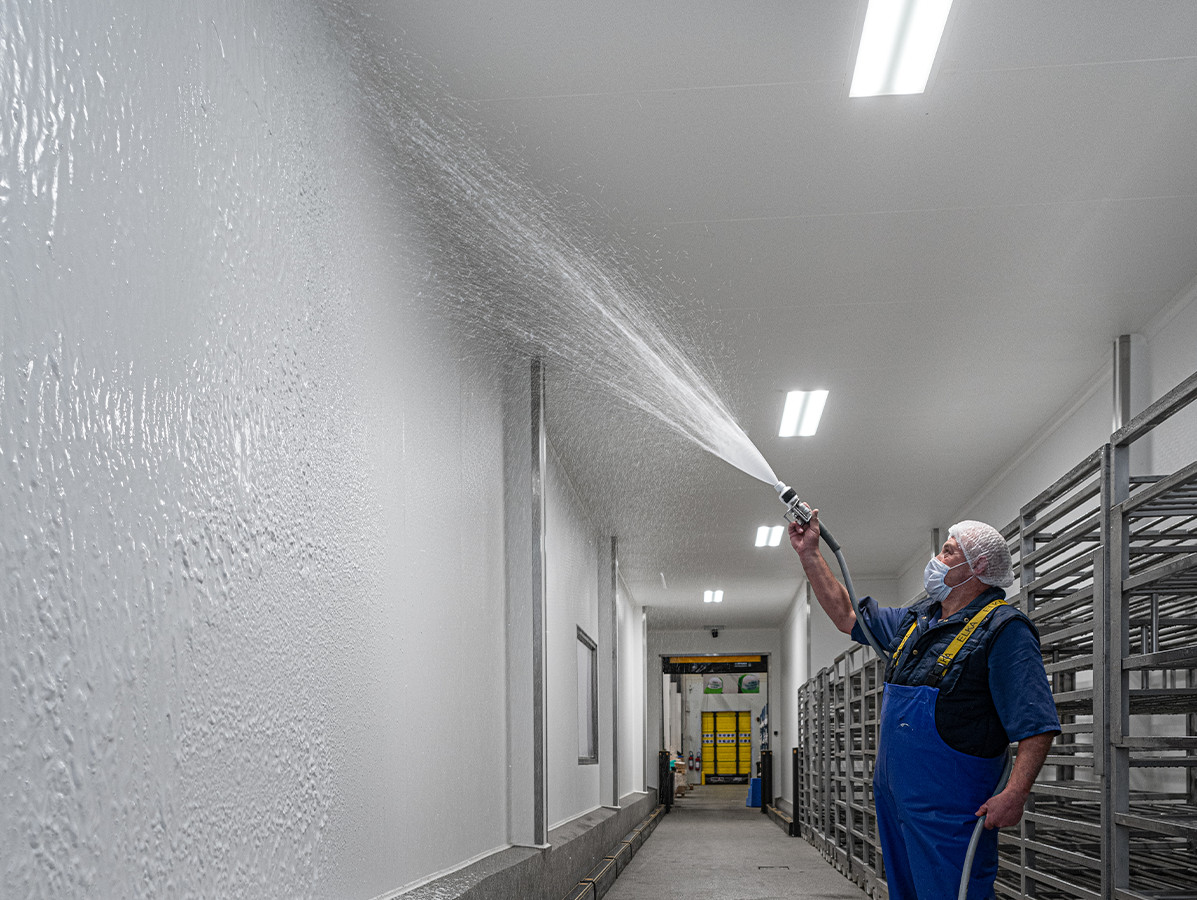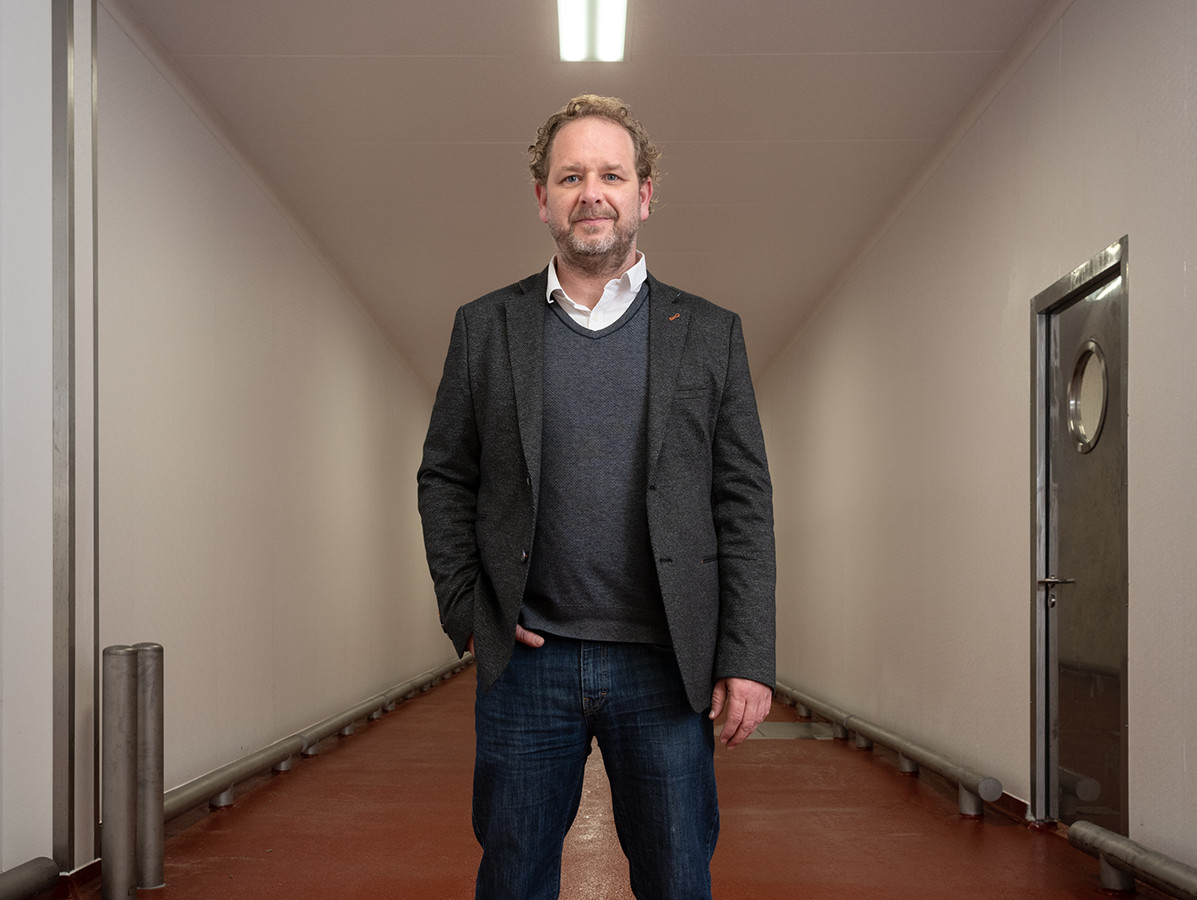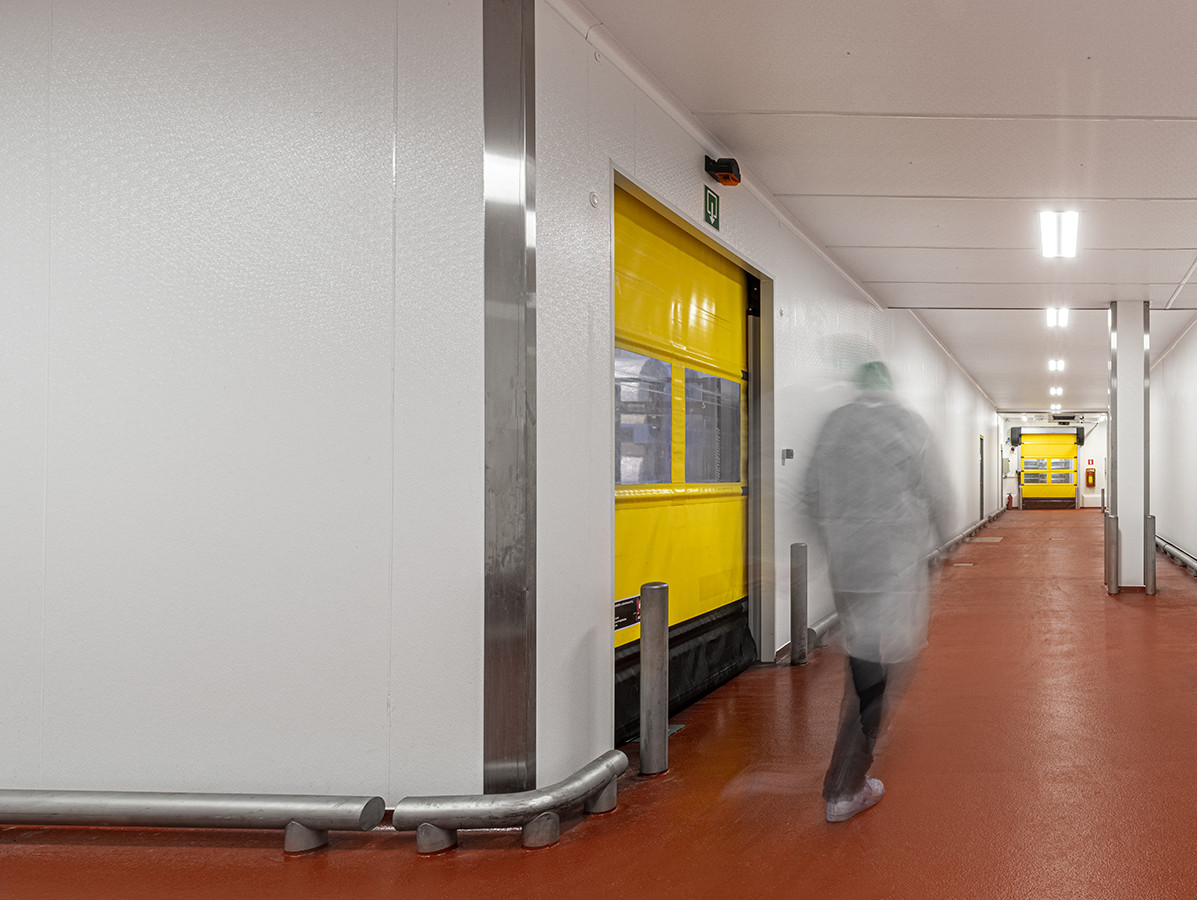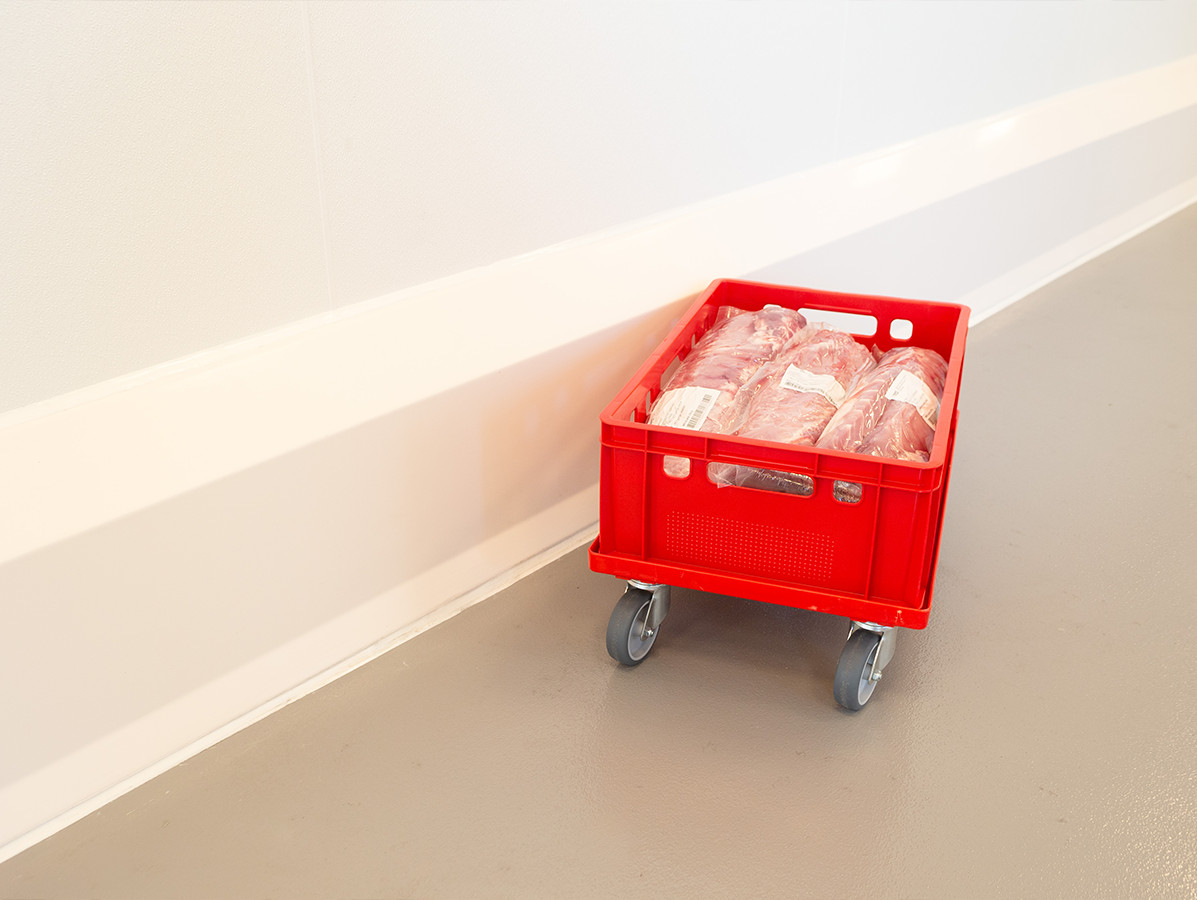
Ter Beke's meat cutting and packaging plant had to be future-proof and hygienic. Many small production areas were converted into a few large rooms, in which no joints could be found. To realise this, the company turned to Isokonstrukt, the installer of PolySto HACCP kerbs and B-Hygienic hygienic wall and ceiling solutions. Ter Beke is satisfied with the renovation: "We can go on for years to come."
"When I am standing here in 10 years, I do not want to see any rust or mould." That was, in a nutshell, the assignment that Charles Van Lerberghe gave to rebuild the factory. He is the plant manager of the Ter Beke factory in Veurne (West Flanders), one of the fifteen production sites the company owns, mainly in Belgium and the Netherlands. Van Lerberghe explains: "Before the renovation, I ended up at Isokonstrukt, which, as part of The Hygienic Solutions Group, is known for their know-how and solutions in the field of industrial, hygienic production environments. They came up with a sustainable, tailor-made solution".
The listed company Ter Beke - with an annual turnover of approximately €750 million - is active in two divisions: the production and cutting of meat products and the production of ready meals. The latter branch focuses mainly on lasagnes and other Italian dishes. The first division is where the food group originated: butcher Francies Coopman founded Ter Beke in 1948 and initially sold mainly salami sausages. In the more than 70 years that followed, the family business grew into a leading name in the European sector.

Bert de Waegenaere
"Today, Ter Beke employs about 3,000 permanent employees," says Van Lerberghe. "In this factory in Veurne there are about 150 of them. Here we focus on cutting and packaging meat products for Belgian retail customers". Bert De Waegenaere, director at Isokonstrukt, adds: "This has to be done in extremely hygienic conditions. Due to the ever-increasing time pressure, it is important for a customer to be able to switch quickly. This includes quick and thorough cleaning of rooms and machines, as well as improving the flow between the various departments. With B-Hygienic and PolySto solutions we can contribute to this".
According to Van Lerberghe, Ter Beke is really known as a cost price breaker among its customers. But also social and sustainable entrepreneurship are important pillars. As a major player, the food group is involved in numerous Belgian and European bodies, such as the National Food and Health Plan. They are also developing packaging concepts from renewable sources in collaboration with suppliers.

Ter Beke also likes to be ahead of the pack at factory level. For example, last year a brand new machine park was installed in the factory in Veurne for both cutting and packaging the meat. This has achieved a considerable improvement in efficiency. Van Lerberghe: "We used to have many small premises, but because of the layout and from a hygienic point of view they were not sufficiently suitable for use in the production process. Those rooms therefore remained unused. In addition, we annually review our infrastructure; that could also be improved in the factory".
Ter Beke therefore decided to demolish the small spaces itself and to start a renovation at the end of 2019. At the beginning of 2020, this resulted in two warehouses for foils, a laundry room for the trolleys and a hygiene lock so that employees could move from the low-risk to the high-risk department. As far as hygiene was concerned, there were a few clear requirements, Van Lerberghe explains: "The walls had to be impact-resistant, easy to wash and easy to maintain due to the robust cleaning process. Previously, the joints between the walls, floor and ceilings were finished with silicone, but that increased the risk of bacterial growth. The dents and scratches with rust on lacquered steel sandwich panels were also a major problem. We wanted a future-proof and food safe production area that could last for at least another ten years. Painted steel sandwich panels get damaged far too quickly, we do not want them in here anymore."

PolySto CleanRock Sanicoat IP40F ©PolySto
B-Hygienic RenoCem was chosen for the covering of the existing walls: hygienic attachment panels that are mechanically fastened and glued against damaged wall panels. The joints have a durable HygiSeal finish. De Waegenaere: "This is a unique 1-component product that we have developed ourselves. It never moulds and cannot be washed out under high pressure. Moreover, the 'embossed' surface of our B-Hygienic materials for wall and ceiling finishes is made of glass-fibre reinforced polyester. The embossed design effectively retains the foam. Afterwards it only needs to be rinsed and disinfected with water. As a result, Ter Beke now uses 30 percent less cleaning products."
The new polyester walls in the factory were protected with chemically anchored, extremely strong prefab PolySto CleanRock kerbs. De Waegenaere: "The mass is twice as strong as concrete and does not absorb any water at all. PolySto stainless steel bollards and PI barriers - filled with concrete to prevent rapid formation of dents - have also been installed. If a forklift truck drives into them, there is never any damage. Therefore, B-Hygienic and PolySto fit together seamlessly!"
Isokonstrukt - active in the food industry for more than 25 years - had already realised projects for Ter Beke in Belgium and abroad. The renovation went perfectly again, according to Van Lerberghe: " This allows us to move forward for years to come! Next year we will renovate another part of the production site. Then we will once again count on Isokonstrukt, the service and assembly company of the manufacturers PolySto and B-Hygienic."
www.isokonstrukt.be
www.b-hygienic.com
www.polysto.com
www.att.eu
Photos: ©Yann Deschepper
Source: Vakblad Voedingsindustrie 2020